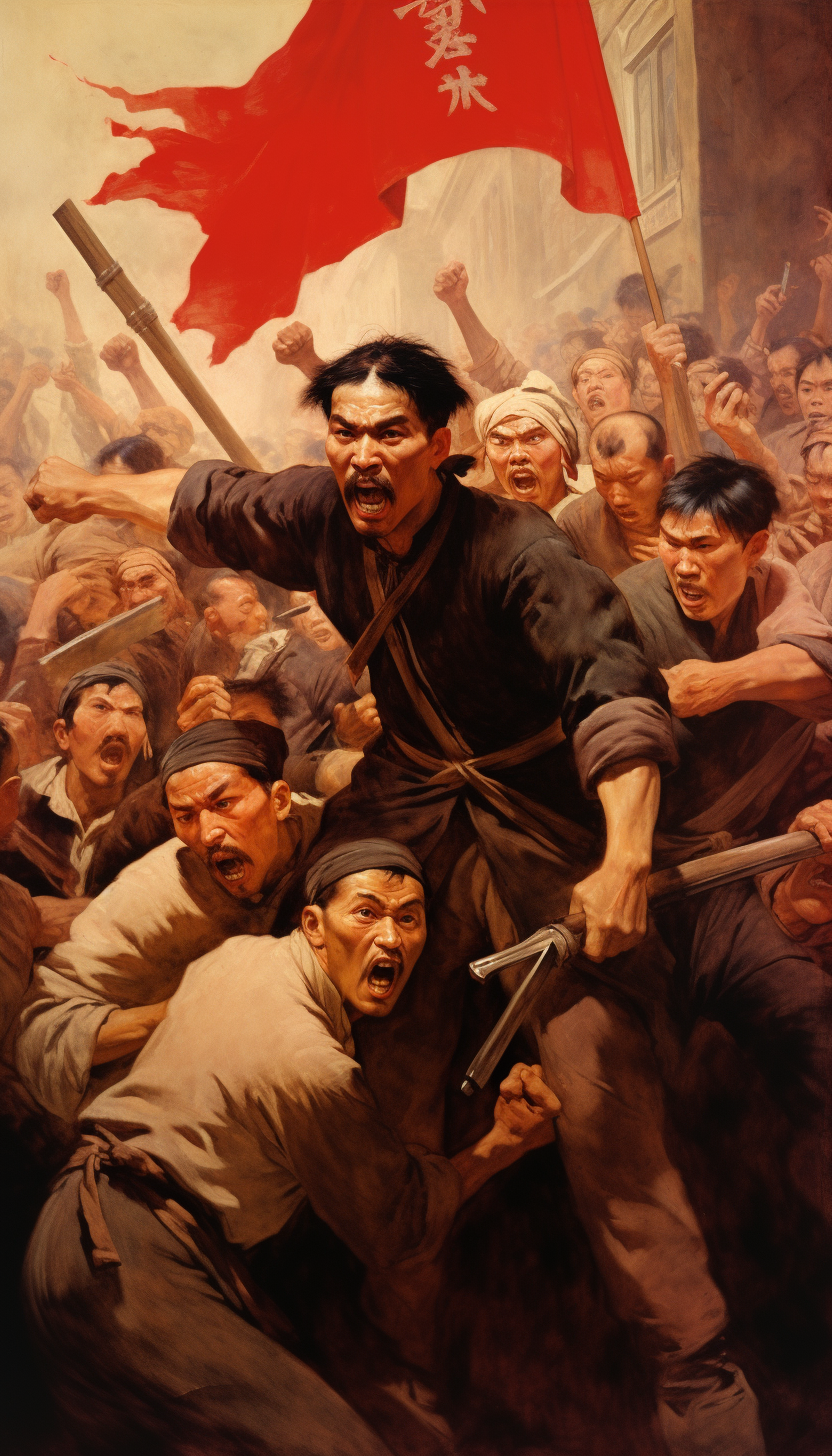Post
The Boxer Rebellion: Origins of Conflict
The origins of the Boxer Rebellion can be traced back to the late 19th century when China was facing growing social, economic, and political upheaval. By understanding these underlying factors, we can gain insight into why the Boxer movement emerged and its opposition to foreign influence.
1. Social Factors: In Chinese society, there was a prevailing sense of frustration and resentment towards the Qing Dynasty's rule, which was seen as weak and corrupt. As the country faced a series of military defeats at the hands of Western powers and Japan, the people sought a scapegoat for their humiliation. The Boxers, officially known as the Society of Righteous and Harmonious Fists, tapped into these sentiments by channeling popular anger towards foreigners and their perceived influence over the government.
2. Economic Factors: China was facing significant economic challenges during this period. Rampant poverty, high taxation, and unequal treaties imposed upon China by foreign powers were major sources of dissatisfaction. As Western countries established spheres of influence within China, local industries suffered, leading to job losses and economic instability. The Boxers, made up primarily of peasants and workers, found their grievances intersecting with broader anti-foreign sentiments.
3. Political Factors: The Chinese government's inability to address these grievances effectively exacerbated the situation. The Qing Dynasty, already facing internal conflicts and declining legitimacy, was torn between the demands of Western powers and the rising tide of nationalism within the country. The government's failure to protect Chinese interests and assert its sovereignty further eroded public trust in their ability to govern.
The combination of these social, economic, and political factors created a fertile ground for the emergence of the Boxer movement. The Boxers offered a sense of empowerment to the marginalized and disenchanted, presenting themselves as defenders of Chinese culture and values against foreign oppression. Their opposition to foreign missionaries and perceived threats to Chinese traditions became a rallying cry for those seeking change.
Understanding the origins of the Boxer movement allows us to better grasp the complexities surrounding the rebellion. Through a deeper exploration, we can gain insight into the historical context and appreciate the complexities of this pivotal event in Chinese history. In the next post, we will delve into the unfolding of the Boxer Rebellion and the major events that took place during this tumultuous time.
